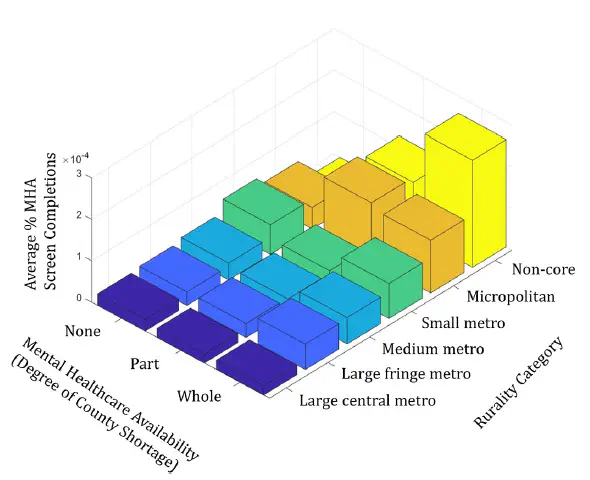Digitally filling the access gap in mental health care: An investigation of the association between rurality and online engagement with validated self-report screens across the United States

Abstract
Mental health disorders are highly prevalent, yet few persons receive access to treatment; this is compounded in rural areas where mental health services are limited. The proliferation of online mental health screening tools are considered a key strategy to increase identification, diagnosis, and treatment of mental illness. However, research on real-world effectiveness, especially in hard to reach rural communities, is limited. Accordingly, the current work seeks to test the hypothesis that online screening use is greater in rural communities with limited mental health resources. The study utilized a national, online, population-based cohort consisting of Microsoft Bing search engine users across 18 months in the United States (representing approximately one-third of all internet searches), in conjunction with user-matched data of completed online mental health screens for anxiety, bipolar, depression, and psychosis (N = 4354) through Mental Health America, a leading non-profit mental health organization in the United States. Rank regression modeling was leveraged to characterize U.S. countylevel screen completion rates as a function of rurality, health-care availability, and sociodemographic variables. County-level rurality and mental health care availability alone explained 42% of the variance in MHA screen completion rate (R2 = 0.42, p < 5.0 × 10 6). The results suggested that online screening was more prominent in underserved rural communities, therefore presenting as important tools with which to bridge mental health-care gaps in rural, resource-deficient areas.